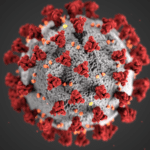Colon cancer is a condition that affects the last part of the digestive tract, known as the large intestine or colon. Like other cancers, colon cancer can cause significant illness or even death. Colon cancer is also common – doctors in the United States will diagnose 106,180 new cases of colon cancer in 2022, according to estimates by the American Cancer Society.
When discussing this type of cancer, doctors and medical researchers often group colon cancer and rectal cancer together under the umbrella term, colorectal cancer.
Approximately 1 in 23 men will receive a diagnosis of colorectal cancer at some time in their lives; about 1 in 25 women will develop the disease at some time throughout their lives. Colorectal cancer is the third leading cause of cancer-related deaths in women and men, and the number two leading cause of cancer-related deaths for men and women combined. Colon cancer will cause approximately 52,580 deaths in 2022.
The good news is that the number of men and women dying from colorectal cancer has been dropping for several decades. This decrease is due to a number of factors, such as better treatments for colorectal cancer. Early screening is the biggest factor in reducing deaths from colon cancer, though, as early screening leads to early treatment. As with most other types of cancer, colon cancer is most responsive to treatment in its earliest stages, before it has spread to other parts of the body beyond the large intestine.
Certain types of screening can also help reduce your risk of developing colon cancer later in life by removing polyps, which are clumps of cells that develop on the lining of the intestine. While most polyps are harmless, some may turn into cancer. Screening with colonoscopy gives doctors an opportunity to detect and remove suspicious polyps before the cells turn cancerous.
More good news – you can look for the early warning signs of colon cancer in the privacy of your own home. If you spot any of the warning signs, make an appointment with your gastroenterologist. Your digestive doctor can help assess your risk for colon cancer, and schedule screening tests like a colonoscopy.
What are the Early Signs of Colon Cancer?
Because early detection and treatment can significantly improve outcomes, it is important to know the early signs of colon cancer. Here are the six early warning signs of colon cancer our doctors want you to know:
1. Bleeding
Tumors have their own fragile network of blood vessels that bleed easily. Colon cancer tumors can leak blood into the digestive tract to cause bright red rectal bleeding or black tarry stools.
2. Fatigue/weakness
Blood carries iron and other nutrients that the rest of the body uses for energy. Over time, bleeding into the intestine can lower iron levels and potentially lead to iron-deficiency anemia, which causes fatigue and weakness.
3. Change in bowel habits
As colon cancer progresses and grows into deeper layers of intestinal tissue, it narrows the passageway through which stool leaves the body. This narrowing, along with other changes to the intestine, can cause constipation, diarrhea, a change in stool consistency, or narrowing of the stool.
4. Stomach pain
The changes in bowel habits can cause persistent abdominal pain, discomfort, or bloating.
5. Feeling like you still have to move your bowels, even though have already “gone”
Colon cancer can cause a growth of polyps that press against the intestinal wall to make you feel like you need to pass stool, even after you have already moved your bowels. Doctors refer to this sensation as tenesmus.
6. Unexplained weight loss
Cancer cells can release substances that change the way your body converts food to energy, which can cause unintentional weight loss. A larger tumor can also block the colon, which can affect bowel patterns in ways to lead to weight loss.
Many people do not experience any symptoms while in the early stages of colon cancer, so it is extremely important to get screened after the age of 45 if you are at average risk or sooner if you have a family history of colon cancer. It is normal to experience occasional and temporary changes in bowel habits, abdominal discomfort, and other digestive symptoms, but if you experience persistent and long-lasting signs, it is time to make an appointment with a gastroenterologist.




